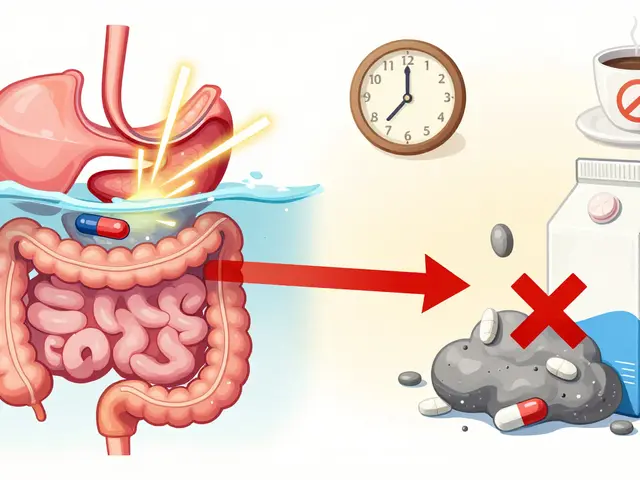Mindfulness: Simple Habits That Help Your Health
A five-minute mindful break can drop your stress level and help you focus—sometimes more than a long to-do list. Mindfulness isn’t a fad or a big time commitment. It’s a set of small habits you can use anytime: while waiting for the kettle, on a short walk, or before taking a pill. These habits help you notice your body, calm your mind, and make better choices about sleep, medication, and pain management.
Quick mindfulness exercises you can do anywhere
Try these short practices. Each one takes 1–5 minutes and works even if you’re busy.
1) 4-4-4 breathing: inhale for 4 seconds, hold 4, exhale 4. Repeat 4 times. It slows your heart and clears foggy thinking.
2) The two-minute body scan: sit, close your eyes, and move attention slowly from your toes to your head. Name sensations without judging them. If your mind wanders, gently return to the scan.
3) Mindful walking: pick a short route. Notice how your feet lift and land, how the air feels, small sounds around you. Stay with one sense at a time—sight or sound or touch.
4) Single-task check: set a timer for five minutes and do one thing only—drink tea, sort mail, or read a short page. Notice how it feels to focus on just that one action.
Use mindfulness to make daily health easier
Mindfulness helps with common health tasks. If you forget medications, pair a short breathing habit with your pill: breathe two times before you open the bottle. That tiny cue improves memory and lowers the chance of mistakes. If you struggle with side effects like nausea or anxiety, use a body scan to notice where discomfort sits and how it changes. Noticing sensations makes them less scary and gives you practical data to tell your doctor.
For people dealing with chronic pain, mindfulness won’t erase pain, but it can change how you react to it. Practicing attention to breath or to a neutral point in the body can reduce the emotional spike that makes pain feel worse. That means fewer panic reactions and better sleep.
Mindful eating helps when medications affect appetite or digestion. Eat slowly for one meal a day. Put your fork down between bites. Notice textures and flavors. This simple habit improves digestion and helps you spot drug-food interactions—like taking a pill with food when it’s needed, or avoiding dairy with certain antibiotics.
Want to make mindfulness stick? Start tiny. Pick one practice, do it for seven days at the same time, and notice differences in mood, sleep, or how you follow your treatment plan. Keep a short note on your phone about what changed—better focus, fewer missed doses, calmer evenings. Small wins keep you going.
If you have a health condition or take prescription meds, tell your provider about new mindfulness habits. They can help you pair the practice with your treatment safely. Mindfulness is a low-risk tool that works well alongside medication, therapy, or lifestyle changes—when used on purpose and kept simple.

Mindfulness & Meditation Techniques to Ease PTSD Symptoms
Learn how mindfulness and meditation can calm PTSD symptoms, with step‑by‑step practices, grounding tips, and how to combine them with therapy for lasting relief.
read more
Finding Relief from Muscle Aches through Mindfulness Meditation
Mindfulness meditation isn't just for mental wellness. It can play a significant role in easing muscle aches and boosting physical recovery. Through understanding how meditation influences pain perception and employing practical meditation tips, one can find both mental and physical relief.
read more




